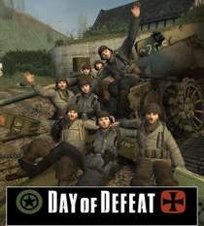HomeLan Fed : Exclusives : Army Massively Multiplayer Project Interview : with Robert Gehorsam
As I noted, we are not designing a game so much as a large-scale, flexible and powerful environment that can be used for training and mission-rehearsal across a range of objectives. So unfortunately, it's probably a bit early to talk in detail about the gameplay. But simply put, the project will enable a commander of a unit to say, "Hey, my unit needs to train for its upcoming peacekeeping duties in Kumar." He works with a trainer to develop a specific environment and scenario (or better yet, modify an existing one out of a repository), figures out who is going to play the bad guys, the civilians and the "others" -- like the Red Cross, the UN, etc. -- and then prep his unit for the exercise. These exercises could last anywhere from a couple of days to months for all we're concerned, that's the beauty of an MMP, of course. And so at a certain time, the participants would start to show up. Bad guys would be given their assignments, good guys theirs, etc. and off they'd go. People play themselves, on the ground, interacting with their team, other units, civilians, the enemy, etc. It's not all combat by any means, there will be a lot of intelligence, patrolling, planning, collaboration, negotiation with civilians, etc. In many ways, MMPs do all of these things today, but each MMP today is highly specified for its particular entertainment and social goals. That's absolutely the right thing to do for a commercial product, but because There was always conceived of as a virtual world platform, it enables us to be more adaptive and general purpose. I expect there will be several dozen different styles of gameplay when this is up and running.
Monday, February 23, 2004
Saturday, February 14, 2004
Videogame Theory - it's an academic question
Ludology.org - Videogame Theory
According to the Entertainment Software Association, 50 percent of Americans over the age of six play computer games, and the industry had $11.4 billion in sales in 2003, more than the film industry. Last year, 63 percent of U.S. parents said they planned to buy a video game.
So why shouldn't it merit serious academic attention?
Academics turn to video games
According to the Entertainment Software Association, 50 percent of Americans over the age of six play computer games, and the industry had $11.4 billion in sales in 2003, more than the film industry. Last year, 63 percent of U.S. parents said they planned to buy a video game.
So why shouldn't it merit serious academic attention?
Academics turn to video games
US engages in opium opportunism?
Nato happy to ignore explosion in Afghan opium output, says Russia
Another bumper crop is Afghanistan, warlords entrenched, and no election this summer - hey, that's business as usual.
Another bumper crop is Afghanistan, warlords entrenched, and no election this summer - hey, that's business as usual.
Friday, February 06, 2004
Free junk for junkies - a fix or folly?
Edmonton Journal - Story - canada.com network
Very informative article which appeared in several papers across Canada on January 25/04. The article describes serveral heroin maintenance programs worldwide, and how Canada is embarking on a pilot project of heroin maintenance in three cities. As well, a overview of the laws against opiates and the impact since late 19th century.
With maintenance being re-discovered in country after country, hardliners in the UN and the White House are doing their best to discredit the idea.
John Walters, the U.S. drug czar, attacked the British system in the Wall Street Journal last year.
"When British physicians were allowed to prescribe heroin to certain addicts, the number skyrocketed," Walters wrote. "From 68 British addicts in the program in 1960, the problem exploded to an estimated 20,000 heroin users in London alone by 1982."
This is deeply deceptive, says Fazey. Not only had the British system been in place for decades before 1960 without any increase in addiction, it was effectively dead "by about 1972."
Very informative article which appeared in several papers across Canada on January 25/04. The article describes serveral heroin maintenance programs worldwide, and how Canada is embarking on a pilot project of heroin maintenance in three cities. As well, a overview of the laws against opiates and the impact since late 19th century.
With maintenance being re-discovered in country after country, hardliners in the UN and the White House are doing their best to discredit the idea.
John Walters, the U.S. drug czar, attacked the British system in the Wall Street Journal last year.
"When British physicians were allowed to prescribe heroin to certain addicts, the number skyrocketed," Walters wrote. "From 68 British addicts in the program in 1960, the problem exploded to an estimated 20,000 heroin users in London alone by 1982."
This is deeply deceptive, says Fazey. Not only had the British system been in place for decades before 1960 without any increase in addiction, it was effectively dead "by about 1972."
Sunday, February 01, 2004
Subscribe to:
Posts (Atom)



